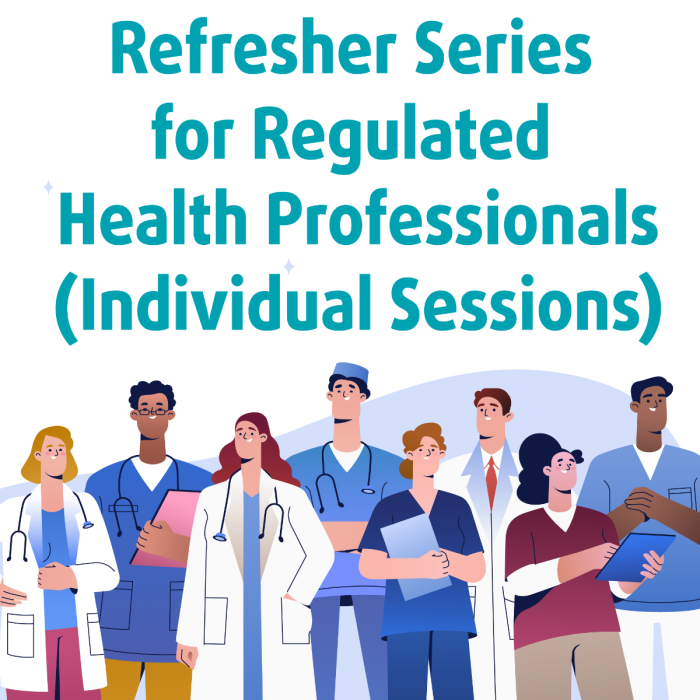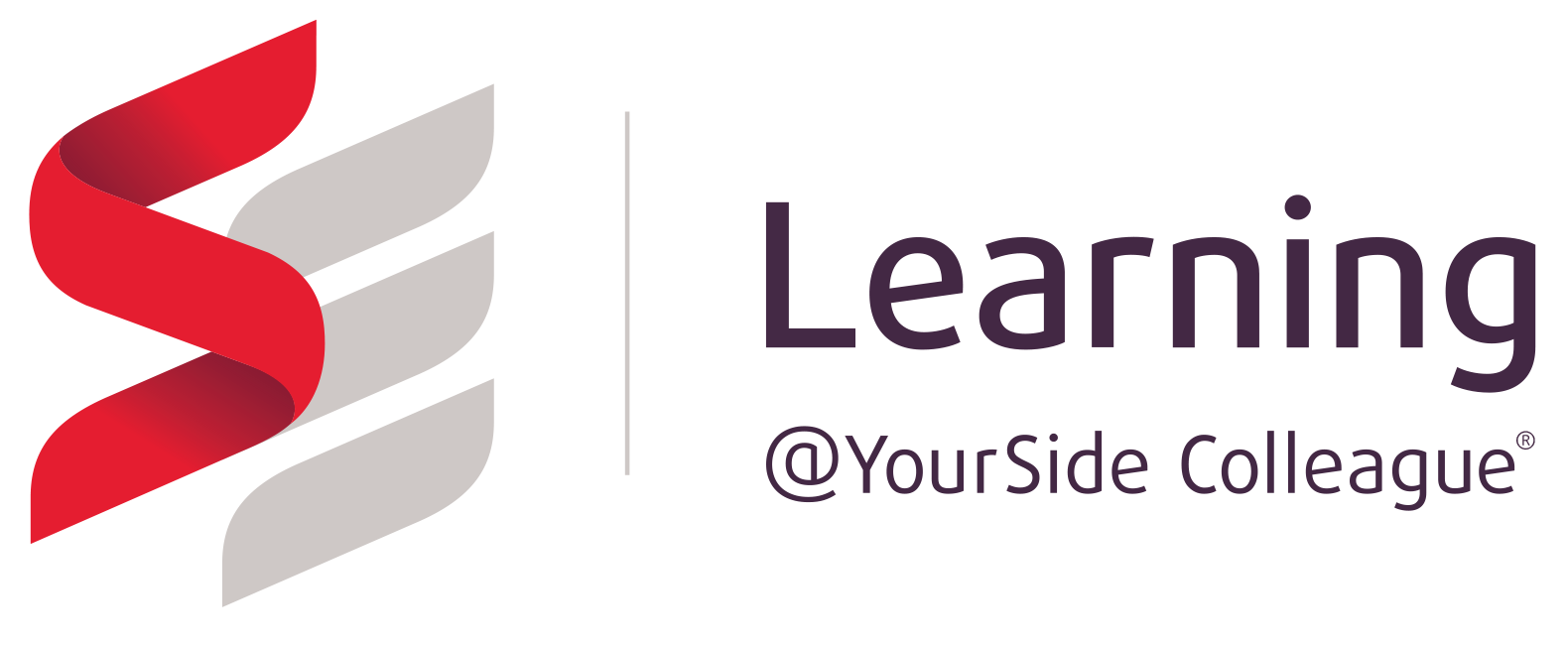Professional Refresher Series for Regulated Health Professionals (Individual Session)
In stock
These 10 sessions are designed for Regulated Health Professionals working in Indigenous communities, including nurses and allied health providers.
Each 1-hour session delivers relevant, culturally informed education to enhance clinical skills, promote wellness, and support safe, ethical, and strengths-based care.

Chronic Disease Management Description- Tuesday, September 16th, 2025 @ 13:30 pm – 14:30 pm EST
Instructor(s): Natalie Difebo
Webinar Description:
This one-hour webinar is designed specifically for regulated health providers working within Indigenous communities across Canada. Participants will gain a culturally informed understanding of chronic disease management that respects Indigenous perspectives and holistic health approaches. The session will cover common chronic conditions such as diabetes, hypertension, and respiratory illnesses prevalent in Indigenous populations, highlighting effective assessment, monitoring, and management strategies. Emphasis will be placed on building strong therapeutic relationships, promoting self-management, and collaborating with Indigenous clients and communities to support wellness and resilience. Attendees will leave equipped with practical tools and culturally safe approaches to improve health outcomes for individuals living with chronic diseases.
Comprehensive Head to Toe Assessments - Tuesday, October 14th, 2025 @ 13:30 pm – 14:30 pm EST
Instructor(s): Natalie Difebo
Webinar Description:
This one-hour interactive webinar is designed specifically for regulated health providers working in Indigenous communities across Canada. Participants will gain essential skills and practical knowledge to perform thorough head-to-toe physical assessments with a culturally safe and holistic approach. The session will cover systematic techniques to assess key body systems, identify common health concerns, and integrate Indigenous perspectives on health and wellness.
Key learning outcomes include:
- Understanding the importance of culturally safe and respectful assessment practices
- Step-by-step guidance on conducting a head-to-toe assessment
- Identifying signs and symptoms of common health issues seen in Indigenous populations
- Integrating holistic views of health, including physical, emotional, and spiritual well-being
- Enhancing communication skills to build trust and rapport during assessments
This webinar combines evidence-based clinical skills with an emphasis on culturally responsive care, supporting health providers to deliver effective and compassionate care in Indigenous settings.
Infection Prevention 101: Practical Approaches for Health Providers in Indigenous Communities - Tuesday, November 18th, 2025 @ 12:00 pm – 13:00 pm EST
Instructor(s): Candice Sanderson
Webinar Description:
This one-hour interactive webinar is designed for health providers working in Indigenous communities across Canada. Participants will gain a foundational understanding of Infection Prevention and Control (IPAC) practices that are practical, culturally respectful, and applicable in both home and community care settings.
The session will cover:
- Core principles of infection prevention (hand hygiene, PPE, environmental cleaning, and respiratory etiquette)
- Common infection risks in community and home settings
- How to break the chain of infection
- Culturally safe approaches to discussing infection prevention with clients and families
- Adapting IPAC practices to local resources and realities
Through case examples and discussion, participants will leave with refreshed knowledge and tools to support safe, effective care while protecting themselves, their clients, and the broader community.
Asset Mapping and Strength-Based Narrative- Tuesday, December 16th, 2025 @ 13:30 pm – 14:30 pm EST
Instructor(s): Gillian Lysyk
Webinar Description:
This one-hour webinar is designed specifically for regulated health providers working in Indigenous communities across Canada. Participants will learn how to apply asset mapping and strength-based narrative approaches to enhance their care practices and foster community empowerment.
Asset mapping focuses on identifying and leveraging the existing strengths, resources, and capacities within Indigenous communities rather than concentrating on deficits or challenges. Coupled with strength-based narrative techniques, this approach helps health providers honor Indigenous knowledge, culture, and resilience while building collaborative partnerships.
Through interactive discussion and practical examples, participants will:
- Understand the principles of asset mapping and its relevance to Indigenous health contexts
- Learn how to identify and engage community assets, including cultural strengths, local knowledge, and social supports
- Explore how strength-based narratives can shift healthcare conversations towards empowerment and healing
- Discover ways to incorporate these approaches into health assessments, care planning, and community health initiatives
Palliative Care & Oxygen Safety in the Home -Tuesday, January 20th, 2026 @ 13:30 pm – 14:30 pm EST
Instructor(s): Laurie Lee Gravelle
Webinar Description:
This one-hour webinar is designed specifically for regulated health providers working in Indigenous communities across Canada. Participants will gain essential knowledge and practical skills to deliver compassionate, culturally safe palliative care in home settings. The session will cover key principles of palliative care with a focus on holistic approaches that honor Indigenous values and traditions.
A significant component will address the safe management and use of oxygen therapy in the home environment, emphasizing risk prevention, equipment handling, and patient and family education. By integrating clinical expertise with culturally respectful practices, this webinar aims to empower health providers to improve the quality of life for clients receiving palliative care while ensuring safety for all.
Key Learning Objectives:
- Understand core principles of palliative care in Indigenous home care contexts
- Recognize the cultural dimensions of providing end-of-life care with respect and sensitivity
- Identify safety protocols for oxygen use and management in home settings
- Implement practical strategies to educate clients and families about oxygen therapy
- Prevent common risks associated with home oxygen use
Documentation and Confidentiality - Tuesday, February 17th, 2026 @ 13:30 pm – 14:30 pm EST
Instructor(s): Natalie Difebo
Webinar Description:
This one-hour webinar is designed specifically for regulated health providers working in Indigenous communities across Canada. Accurate and respectful documentation is a cornerstone of quality healthcare delivery, and confidentiality is paramount to maintaining trust and honoring Indigenous values around privacy and information sharing.
Participants will explore best practices for thorough, culturally sensitive, and legally compliant documentation in Indigenous healthcare settings. The session will cover the ethical and legal responsibilities related to confidentiality, including the principles of privacy legislation such as the Personal Health Information Protection Act (PHIPA) and the Health Information Act (HIA), as applicable in various provinces and territories.
The webinar will also highlight culturally safe approaches to maintaining confidentiality, emphasizing community protocols and Indigenous perspectives on information sharing. Practical strategies to protect client information, navigate consent, and document effectively while respecting Indigenous worldviews will be shared.
By the end of the session, participants will have increased confidence in managing documentation and confidentiality in a way that supports quality care, respects Indigenous cultural safety, and complies with professional standards.
Vicarious Trauma and Self-Care for Health Providers in Indigenous Communities - Tuesday, March 17th, 2026 @ 12:00 pm – 13:00 pm EST
Instructor(s): Victoria McKay, Tyler Geisler
Webinar Description:
Health providers working in Indigenous communities often hold deep, trusting relationships with those they serve, which can expose them to repeated stories of trauma, grief, and loss. Over time, this can lead to vicarious trauma—a shift in a helper’s internal experience resulting from empathetic engagement with others’ suffering. Without intentional self-care and support, vicarious trauma can affect emotional wellbeing, job satisfaction, and personal relationships.
This one-hour webinar will introduce participants to the concept of vicarious trauma and provide culturally grounded, practical strategies for self-care and resilience. It will highlight the importance of community, connection, and cultural practices as sources of strength and healing. Through reflection and discussion, participants will learn how to recognize the signs of vicarious trauma in themselves and others, and explore ways to maintain wellness while continuing to provide compassionate care.
Learning Objectives:
- Define vicarious trauma and recognize its signs and symptoms
- Understand the impact of working with trauma in Indigenous contexts
- Explore culturally safe and community-informed approaches to self-care
- Identify strategies for building emotional resilience and maintaining wellbeing
Who Should Attend:
Unregulated and regulated health providers, including community health workers, nurses, personal support workers, and mental wellness teams working in or with Indigenous communities across Canada.
Wound Care Essentials -Tuesday, April 21st, 2026 @ 13:30 pm – 14:30 pm EST
Instructor(s): Corey Mackenzie, Laurie Lee Gravelle
Webinar Description:
This one-hour interactive webinar is designed specifically for regulated health providers serving Indigenous communities across Canada. Participants will gain practical knowledge and culturally respectful approaches to wound assessment, management, and prevention in community and home care settings. The session will cover wound types commonly encountered, evidence-informed care practices, infection prevention, and strategies to support healing while respecting Indigenous perspectives on health and wellness. Emphasis will be placed on holistic care that integrates clients’ cultural values and community resources to promote optimal outcomes.
By the end of this webinar, attendees will be equipped with essential wound care skills to confidently support Indigenous clients and contribute to improved health outcomes in their communities.
Body Mechanics & Back Safety: Safe Lifting and Using a Mechanical Lift- Tuesday, May 19th, 2026 @ 12:00 pm – 13:00 pm EST
Instructor(s): Candice Sanderson, TBD
Webinar Description:
This one-hour interactive webinar is designed for health providers working in Indigenous communities across Canada. Participants will learn the principles of body mechanics and back safety to reduce the risk of injury during client care activities. The session will include practical guidance on how to move, lift, and reposition clients safely using proper posture and ergonomics. It will also provide step-by-step instruction on the safe use of a mechanical lift, including pre-use checks, client preparation, and two-person lift protocols. Culturally safe care and respect for community values will be woven throughout the training.
Learning Objectives:
By the end of this session, participants will be able to:
- Describe the importance of proper body mechanics and back safety.
- Identify common causes of injury and how to prevent them during lifting and repositioning.
- Demonstrate safe techniques for moving clients in bed and from seated positions.
- Understand when and how to use a mechanical lift safely and effectively.
- Promote teamwork and communication during client transfers to ensure safety and dignity.
This training supports caregivers in protecting their health while providing safe, respectful, and high-quality care within Indigenous community settings.
Delegation of Skills- Tuesday, June 16th, 2026 @ 12:00 pm – 13:00 pm EST
Instructor(s): Candice Sanderson, Natalie Difebo
Webinar Description:
This one-hour webinar is designed for health providers working in Indigenous communities across Canada and explores the principles, responsibilities, and practices of safe and effective delegation of skills in community-based healthcare settings. Participants will learn when and how delegation is appropriate, the legal and ethical considerations involved, and how to maintain culturally safe relationships while working within scope.
Through discussion and practical examples, this session will highlight the importance of trust, communication, and collaboration between regulated and unregulated care providers. The webinar also emphasizes the importance of respecting community context, traditional knowledge, and capacity building when delegating clinical tasks.
Key Topics Include:
- What is delegation and why it matters in Indigenous health care
- Roles and responsibilities of delegators and delegatees
- Understanding scope of practice and accountability
- Documentation and communication best practices
- Culturally safe delegation: promoting respect and safety
- Real-world examples from Indigenous community settings
